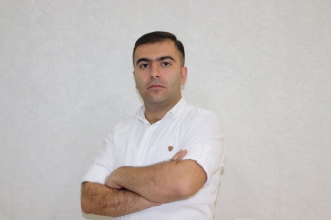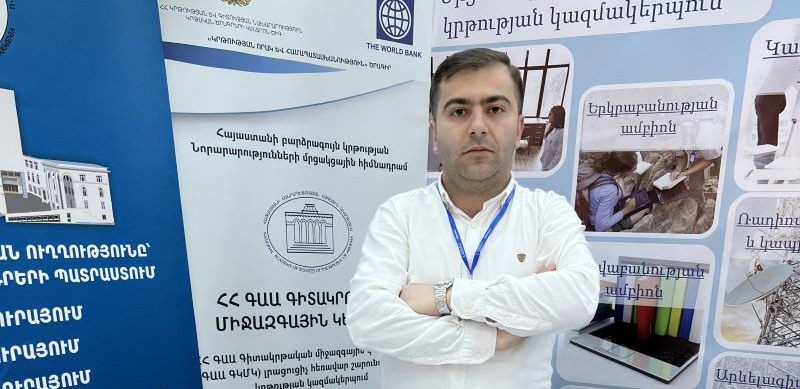"The Perspective of My Chosen Field Led Me to Pursue Postgraduate Studies", Grigor Ayvazyan, PhD student
February 26, 2024
Grigor is currently enrolled in the post-graduate program of International Scientific-Educational Center of NAS RA after completing with distinction the Master's program of Environmental Protection and Natural Use of the joint Department of ISEC and the Center for Ecological-Noosphere Studies (CENS). We discussed work in science, career goals, and other matters with Grigor.
-How would you characterize your years of study in the Master's program of the Department of Environmental Protection and Natural Use?
-My years of study were definitely full of expanded knowledge. Due to the skilled teaching staff and scientific team, I gained competitive knowledge and extensive experience, which ensured my future success. Having been taught by young and accomplished scientists, I gained the knowledge I had hoped for when applying for this Master’s program.
-What enabled you to pursue your studies further in the ISEC post-graduate program?
-My motivation to pursue post-graduate program stemmed from my interest in science, my desire to apply the knowledge I gained from my Master's degree in a wider context, and the perspective of my chosen field. This will enable me to solidify my position and gain even more experience in the scientific community.
-Where do you currently work, and what skills you gained at ISEC are especially useful in your present role?
-Currently, I work in the GISand Remote Sensing Department of the Ecological-Noosphere Studies of NAS RA. Since the Ecocenter carries out interdisciplinary research activities, all the expertise and understanding obtained during the Master's program are applied here.
-What is the subject matter of your scientific research, and what issue are you striving to cover?
-My research focuses on creating a system that uses machine learning models and remote sensing technologies to examine the spatiotemporal changes in the ecological state of natural forages in specific landscape zones of the Republic of Armenia. We are conducting research to determine the viability and efficiency of remote sensing technologies (drones, satellite images) for evaluating and tracking the state of natural mountain fodder in RA. Additionally, we are creating a system to assess how the ecological state of the feedlots has changed over time, which will make it possible to easily identify issues across wider areas and take necessary preventive measures.
-What scientific endeavors do you have planned for the near future?
-I intend to complete my research and present my PhD dissertation for defense.
-What problems do students currently face, and what remedies would you suggest?
-The biggest challenge students currently face is the difficulty of finding a job in their profession after graduation, which requires a systematic approach. Awareness events are highly appreciated, which will provide information about job openings in the labor market, acting as a middleman between the employer and the students based on the student's chosen profession.
Most importantly, there will be a notable increase in youth activity when the student-centered policy approach is implemented and maintained. Thanks to ISEC and Ecocenter, I am well-versed in the substantial potential of implementing this approach, and I am sure that its stimulation is required in all educational institutions within our country.
ISEC NAS RA Department of Public Relations and Career



